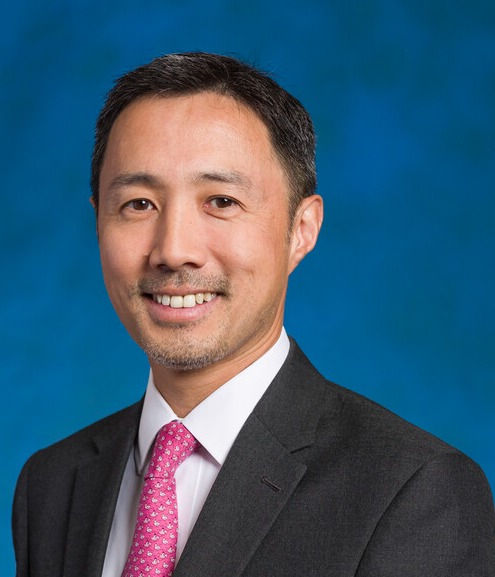SAN FRANCISCO, Calif. -- By Lee Han-soo/Korea Biomedical Review correspondent – As the Covid-19 pandemic is transitioning into an endemic, many healthcare companies unveiled their blueprint to expand their business to the global stage at the 2023 J.P. Morgan Healthcare Conference.
Unlike in the past two years when most of the healthcare talks were centered on Covid-19 vaccines and treatments, companies participating in the 2023 J.P. Morgan Healthcare Conference highlighted focus on the endemic situation and how they would navigate amid a looming global recession.
With the 41st Annual J.P. Morgan Healthcare Conference ending its four-day run on Thursday, Korea Biomedical Review had an email interview with David Lau, Co-head of China Investment Banking and Co-head of Asia Healthcare Investment Banking at J.P. Morgan, to hear more about the conference and his prediction for the healthcare industry in 2023.

Question: Please introduce yourself. What does your job entail?
Answer: I am David Lau, Co-head of China Investment Banking and Co-head of Asia Healthcare Investment Banking at J.P. Morgan. I head up our investment banking practices across different sectors in China, and also cover our strategic healthcare clients in the APAC region.
Q: How has the recent Covid-19 pandemic changed, and what companies participate in the 2023 J.P. Morgan Healthcare conferences?
A: This year sees the return of the Annual J.P. Morgan Healthcare Conference to an in-person format for the first time since the Covid-19 pandemic, and we’ve seen a strong desire from global healthcare companies to present and participate in this year’s event.
In the past two years, clients participated virtually. But the easing of the Covid-19 situation globally and the recent lifting of travel restrictions in China have enabled our clients to come to the U.S. to participate in the event.
Over the past 41 years, the J.P. Morgan Healthcare Conference has established itself as the largest and most informative healthcare investment symposium in the industry, which connects global industry leaders, emerging fast-growth companies, innovative technology creators, and members of the investment community.
It provides an unparalleled opportunity to interact physically with the C-suites and investors in the industry. We have over 8,000 registered attendees and some 40,000 total participants this year.
Q: The JPM Healthcare Conference is receiving more and more attention from Asian companies. Do you feel like there have been any changes in terms of investor sentiment or perspective of Asian companies? How big of a part are Asian companies at J.P. Morgan Healthcare Conference?
A: The conference is indeed receiving more attention from Asia, with companies having increasing demand to expand their global footprint, be it through conducting overseas clinical trials, licensing, or other collaboration with overseas partners.
The JPM Healthcare Conference provides Asian companies the unique opportunity to present their latest developments on one of the most anticipated stages in the industry, learn about the latest industry trends and interact with other industry participants and investors.
The past year has been challenging for the overall healthcare sector as investors tended to be more rational and value-driven.
Under such a trend, healthcare companies’ capital market performance was polarized, with top-tier companies remaining the favorites while less established companies found funding support more challenging.
However, following the easing of Covid-19 restrictions for most Asian countries, we have already begun to see improved sentiment in Asia’s capital markets, but expect investors to remain rational and acute to risk control.
True innovation-driven companies with first-in-class or best-in-class products and solid R&D platforms will be best positioned to benefit from the sentiment recovery.
Asian companies have played a key role in this year’s conference. Ten Asian companies presented in the main track, and 50 more, in the APAC track. More and more voices from Asian companies are being heard and recognized in this most influential event in the healthcare industry.

Q: Due to Covid-19, healthcare has recently been making drastic changes in terms of digital transformation. Does J.P. Morgan also see similar trends in the investment sector?
A: Following the record levels of activity in 2020 and 2021, the healthcare equity capital markets came under pressure in 2022 along with the wider equity capital markets.
We saw initial public offering (IPO) and follow-on transaction activities slow down materially across subsectors both in terms of volume and size.
In public markets, investors were moving away from early-stage companies such as biotech and medtech into more mature and profit-making companies such as CXO (which encompasses contract development organization (CDO), contract manufacturing organization (CMO), and CDMO), service, and pharma.
Private markets were relatively more robust than public markets; investors were moving to earlier-stage companies to postpone the time to IPO to avoid the volatile markets.
Also, companies often considered flat and down rounds, and we saw lots of participation from existing investors to bridge to the next catalyst.
However, with the market recovering in the last few months of 2022, investors are gradually returning to risk-on mode and are beginning to participate in deals - we expect investment activity in the healthcare sector to pick up in 2023.
Multiple themes received a strong boost because of Covid-19, such as vaccines, tests, and antiviral drugs.
Digital transformation is indeed one of those themes that, during Covid-19, became hugely important with the need for internet hospitals, online diagnosis, and online pharmacies receiving unprecedented attention.
Governments, the healthcare industry, and the public have a much better understanding of such channels, not only for their value in times of emergency, but also for the potential for solving non-emergency and chronic disease drug supply issues.
Therefore, we do expect internet hospitals and online pharmacies will be better applied and developed in the future, even post-pandemic.
Q: Can you give us a 2023 outlook for the healthcare industry amid a looming global recession?
A: Healthcare is the sector that can navigate through different cycles, and we anticipate investment activities to regain momentum in 2023 on the back of a stronger macro environment.
For IPOs, public market investors will remain focused on later-stage assets with advanced clinical data and a clear pathway to approval or commercial, though certain platform companies offering unique science are also likely to access the IPO market.
In other subsectors of healthcare and the broader IPO market across sectors, investors will maintain a high bar, prioritizing scaled businesses with durable growth, large end markets, competitive moats, and profitability or a clear path to profitability.
Q: A lot of healthcare startups and ventures are witnessing the investor market freezing up due to the global recession. Do you have any tips on how such companies should navigate in terms of investment during these harsh times?
A: The lukewarm financing environment in 2022 presented challenges to startup companies especially those equipped with limited resources to withstand the cycle.
This has required companies to seek more differentiated positioning and devote resources to areas with true clinical needs.
Cooperation remains an important development approach.
There were various successful cases across Asia and the globe where multinational pharmaceutical companies cooperated with startup companies on single product and technology platforms together with equity investment.
The startup companies can leverage the financial and R&D resources of multinational pharmaceutical companies to develop the pipelines and bring them to commercialization jointly.
As the No.1 investment bank in the healthcare sector globally, J.P. Morgan focuses on a few factors to value the potential of a healthcare company.
Such factors include the quality of the pipeline assets, differentiated technology and platform, clinical data, the development trends of the leading global companies in the same vertical, the reputation of the company in the industry, and last but not least, the company’s global vision and willingness of overseas cooperation.
Related articles
- [2023 JP Morgan Healthcare Conference] Samsung Biologics jumping into ADC, gene therapy
- [2023 JP Morgan Healthcare Conference] ‘Investors more interested in digital health’
- [2023 JP Morgan Healthcare Conference] Lotte Biologics eyes $3 bil. revenue from 3 'mega plants'
- [2023 JP Morgan Healthcare Conference] Has interest in SD Biosensor faded as Covid becomes endemic?
- [2023 JP Morgan Healthcare Conference] Orum Therapeutics, ‘the world’s 1st’ to develop a dual precision targeted protein degrader
- [2023 JP Morgan Healthcare Conference] Investors scrutinize balance sheets, expect more M&As of biopharma
- [2023 JP Morgan Healthcare Conference] ABL Bio aims to license out 2 bispecific antibodies after Sanofi deal
- SCM Lifescience to bring a first-in-class treatment for acute pancreatitis: CEO
- ‘VC investment in biotech shifted toward mid-term from early stage in 2022’
- Korean pharma giants to impress investors at 2024 J.P. Morgan Healthcare Conference

